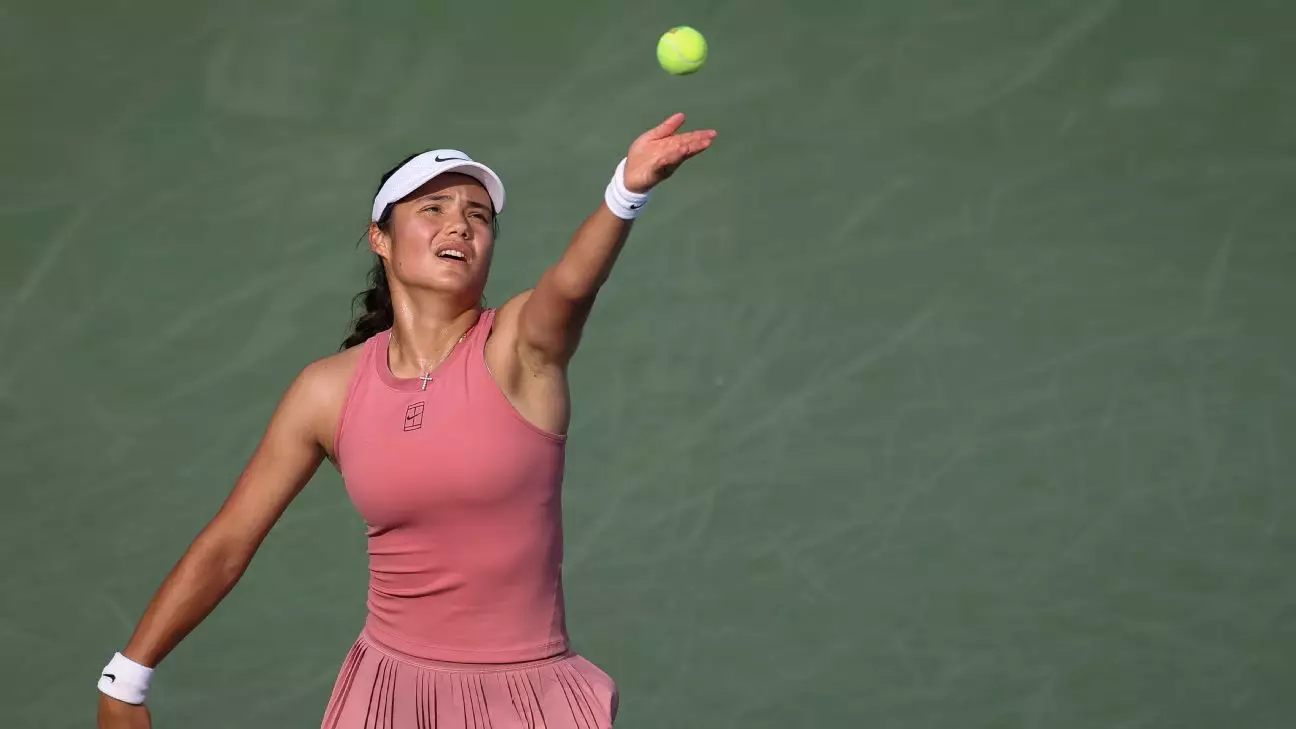In the recent uptick of competitive tennis, the performances of young players like Emma Raducanu exemplify the unpredictable nature of the sport. Raducanu’s victory over Marta Kostyuk is more than just a win; it signifies her resilience and capacity to capitalize on opportunities amid moments of adversity. Despite her relatively fluctuating form, Raducanu’s grit shines through, especially as she navigates the pressures of returning to top-tier competition after early setbacks. Her victory reminds us that even those battling prolonged slumps can ascend anew when they maintain unwavering focus and adaptability. This match doesn’t just highlight Raducanu’s talent but underscores the importance of mental fortitude in a sport that often demands relentless perseverance.
Lessons from Athletic Longevity
The appearance of Venus Williams on the court at age 45 is nothing short of inspiring. Her victory, making her the second-oldest woman to win a tour-level singles match, underscores an essential truth: longevity in sports isn’t solely about physical endurance but also about mental resilience and passion. Williams’ continued success at an age where many athletes have long retired is a testament to her relentless dedication and ability to reinvent herself. In an era where youth is often prioritized, her story advocates for respect toward seasoned athletes who challenge stereotypes and push boundaries. Her continuing journey encourages both current players and admirers to see athletic careers as enduring pursuits of mastery, perseverance, and love for the game.
The Fragile Landscape of Rising Careers
Marta Kostyuk’s ongoing struggles, marked by a sixth consecutive first-round exit, reflect the harsh realities many young players face when attempting to establish themselves. Her slump reveals the mental toll that consistent early defeats can impose—sometimes leading to doubts that threaten to derail promising careers. This pattern highlights the volatile nature of professional tennis: peaks and valleys are part of development. However, her performance also prompts a broader reflection on how resilience is cultivated not just on the court but through support systems, coaching, and mental health strategies that challenge the narrative of inevitable decline. Her case acts as a reminder that perseverance isn’t simply about physical effort but also about maintaining belief during tough times.
The Evolving Face of Competition
In the men’s draw, surprises like Cameron Norrie’s victory over Lorenzo Musetti illustrate how unpredictable tennis remains at the highest levels. Musetti’s recent struggles, compounded by injury, emphasize how fragile momentum can be in professional sports, especially when health concerns intervene. The withdrawal of Holger Rune due to a back injury further underscores the importance of physical health in sustaining competitive excellence. These developments shine a spotlight on how modern tennis athletes must balance relentless competition with careful management of their well-being. The shifting landscape encourages a broader appreciation for resilience—not only of spirit but also of the body’s capacity to endure the rigors of a demanding sport.
In sum, recent tennis tournaments serve as a vivid canvas portraying the durable human spirit battling injury, setbacks, and age—all in pursuit of greatness. The narratives woven through Raducanu’s resilience, Venus Williams’ longevity, and the fragile careers of emerging players challenge us to rethink what it means to be truly resilient in sport. At their core, these stories ignite a powerful message: perseverance, adaptability, and relentless passion are the true victories in the relentless pursuit of excellence.

